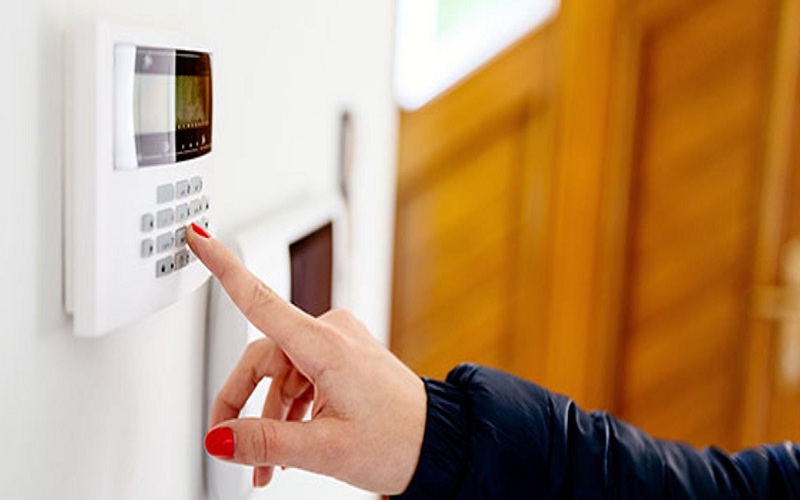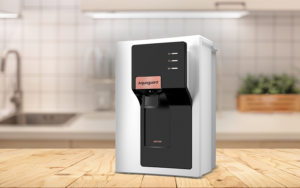
What Factors Should I Consider When Choosing Security Alarm System and Structured Cabling Installers for Home Security?
Selecting the best security alarm system and installer is crucial for safeguarding your family and property. To make sure you acquire a system that fits your demands and budget, there are a few things you should take into account.
Expertise and Standing
The experience and standing of the security alarm systems installation firm rank among the most crucial things to take into account. Seek out businesses that have a solid track record and have been in operation for a number of years. Skilled firms will have handled a wide range of home security scenarios and implemented several systems. They will also be knowledgeable about current best practices and technologies.
See what previous clients have to say about the calibre of installation, customer support, and alarm response by reading online reviews on websites like Google and Facebook. Get recommendations for businesses from neighbours, friends, or relatives that they have used and found satisfactory. The reputation of a business may tell you a lot about the quality of service you can expect.
Options for Security Systems
Various security system kinds are available, so you should evaluate them based on your needs and financial situation. Motion sensors, door/window contacts, and a control panel for arming and disarming the system are typically found in basic systems. Glass break sensors, smoke/fire detectors, carbon monoxide detectors, flood/freeze sensors, remote cameras, and two-way audio communication are examples of characteristics found in more sophisticated systems.
To figure out how many sensors you need, take into account the size and structure of your home. Consider safeguarding important areas and entry points such as windows and doors. Choose between self-monitoring with a mobile app or monitoring by a security provider. Although they need a monthly or yearly subscription, monitored systems offer professional monitoring and emergency response around-the-clock.
Organised Wiring
Consider hiring a structured cabling installers to install all the required wiring during building or remodelling for a seamless integrated system. A standardised and structured approach to wiring a building for numerous systems, such as security, data/internet, audio/video, and phone, is known as structured cabling.
One advantage of structured cabling is that it’s discrete, clean wiring that doesn’t take away from the beauty of your house. It offers a strong framework that makes it simple to add or relocate devices as your needs evolve. Selecting a seasoned structured cabling provider guarantees that, for optimal performance and future-proofing, the wiring satisfies TIA/EIA standards.
Costs of Equipment and Installation
To evaluate the prices of installation and equipment, obtain estimates from a minimum of three security providers. More sophisticated systems with cameras and automation can cost before monthly monitoring fees. Basic systems typically start at minimum cost. Verify that quotes contain a thorough explanation of all labour, equipment, and other costs like design or permission fees.
Inquire about any ongoing expenses such as service contracts, equipment updates, or monitoring fees. Recognize the terms of the equipment warranty and the labour warranty coverage for installation in case there are any future problems. Financing alternatives with 0% interest may be offered to stretch payments over a period of six to twelve months. The whole expense should not exceed your security budget.
Usability and Potential Expansion
Take into account how simple it is to use the mobile apps and control panel. Seek for simple, easy-to-use systems that you and other family members can pick up fast. Virtual keypads on phones and tablets or multiple keypads should be supported by the system for arming.
Consider how the system might grow in the future as well. Make sure that the installation, panel, and wiring allow for the future addition of more zones, sensors, cameras, or other devices. This eliminates the need for future total rewiring and enables you to improve protection in an affordable manner as needs evolve. Long-term protection for your initial investment is provided by an extensible system.
Customer Service and Response Monitorin
Find out from the security business what procedures are in place for emergency response and customer service. This includes emergency alerts during both monitored and self-monitoring, monthly maintenance inspections, and response times to system issues. To ensure dependable, high-quality service over the long run, ask for references from previous clients.
Professional monitoring companies usually respond to emergencies in less than sixty seconds. Self-monitoring, however, depends on you getting smartphone alerts and making help calls, so local emergency response times might be longer. While selecting monitoring options, take your needs and risk tolerance for reaction times into account.
Security System Types
There are several primary categories of home security alarm system to take into account:
Monitored Alarm Systems: These systems come with emergency response and round-the-clock expert monitoring. Alarms are delivered straight to a monitoring centre when motion sensors, door/window contacts, glass breaks, and other devices detect something.
Alarm systems that are self-monitored are comparable to monitored systems but do not require a monthly monitoring subscription. Instead, you rely on mobile alerts and making your own help calls when an alarm goes off.
Selecting an Installer for Structured Cabling
Look for the following credentials in a structured cabling installer when selecting one:
BICSI (Building Industry Consulting Service International) certified, indicating proficiency in design, standards, and installation procedures.
Has errors and omissions insurance (E&O) in case of mishaps or problems with installation.
Able to offer references from previous low-voltage business or residential projects.
Makes use of premium, shielded cabling that is approved for phone, A/V, data, and security systems.
Offers completed wiring diagrams, manuals, and testing report paperwork.
Provides assistance and support in the event that further cabling is required after the job is finished.
Researching system kinds, licensed installers, insurance, and licensing may assist guarantee a smooth, dependable security solution that will safeguard your house for many years to come.
Conclusion
You may choose a security system that is appropriate for your house and budget by thoroughly researching available options and installers. Taking into account elements like background, standing, caliber of installation, choices of equipment, expenses, user-friendliness, and assistance will help you get a system that offers complete protection and confidence for many years. Making the time for a thorough assessment up front will save you hassles and boost your confidence in your decision.


